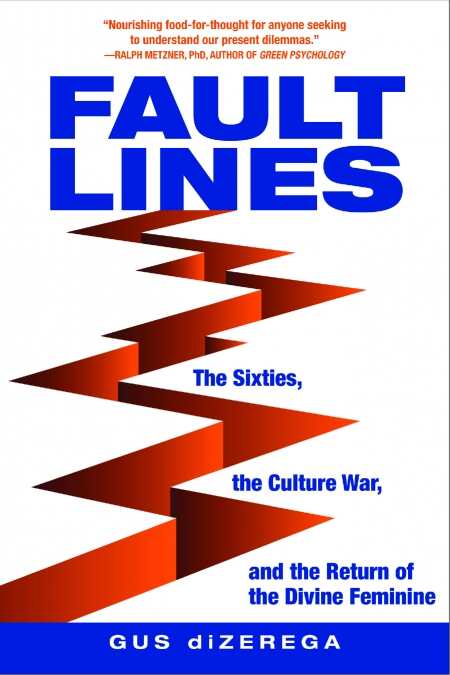Fault Lines
The Sixties, the Culture War, and the Return of the Divine Feminine
Enlightening and heartfelt, this call to political action is perfect reading for liberal academics.
Fault Lines examines current culture and politics in the light of liberal and conservative philosophy, especially as they relate to the ideological shifts of the 1960s. Its primary theme is the need for a cultural shift toward a feminine perspective to counteract “pathological masculinity,” a condition of unchecked and exclusive male-dominated political interest. DiZerega associates this pathology with a focus on central power, nihilism, and religion in conservative politics. Alternatively, feminine thought is associated with liberal sensibilities, empathy, and alternative religion.
Though the book is fervent about breaking with current cultural gender roles, the assignment of various traits to masculine or feminine categories is problematic. While a few of these assumptions are shown to be supported by neuroscience, the standard for determining masculine and feminine types is never made clear except in quotations and examples presented by the author. While this doesn’t undermine the thesis, more in-depth discussion would make the reasoning behind the identification of masculine and feminine more universally clear.
For a commentary about polarization, Fault Lines itself is quite polarized. Many of the neoconservative elements whose rhetoric he bemoans have since been eliminated from politics by the democratic process. The rare criticism of liberal elements is presented as a creeping case of nascent or concealed conservative sentiment, and as a result, Fault Lines comes across as biased.
It is possible that the author was attempting to choose an audience, since after stating his political conclusions, he moved into environmental and religious themes that he had already defined as attractive to liberals and the feminine-minded. DiZerega’s discussion of goddess theology is lively, interesting, and certainly worthy of its own book. But the broad range of Fault Lines makes it difficult to consider as a unified whole.
This may not be an impediment to the right reader, however. There is no question that Fault Lines is enlightening; indeed, it is as interesting a political treatment as any, and it’s far better researched than many of its cousins. Readable to the point of friendliness, this political examination features extensive research, notes, and appendices. Citing sources ranging from Pat Robertson to Ayn Rand and Starhawk, it is both light and heartfelt. It is easy to imagine Fault Lines on a shelf in a university’s political science department or student lounge, or even in the library of a religious institution whose tenets lean toward the open-minded.
Reviewed by
Anna Call
Disclosure: This article is not an endorsement, but a review. The publisher of this book provided free copies of the book to have their book reviewed by a professional reviewer. No fee was paid by the publisher for this review. Foreword Reviews only recommends books that we love. Foreword Magazine, Inc. is disclosing this in accordance with the Federal Trade Commission’s 16 CFR, Part 255.

